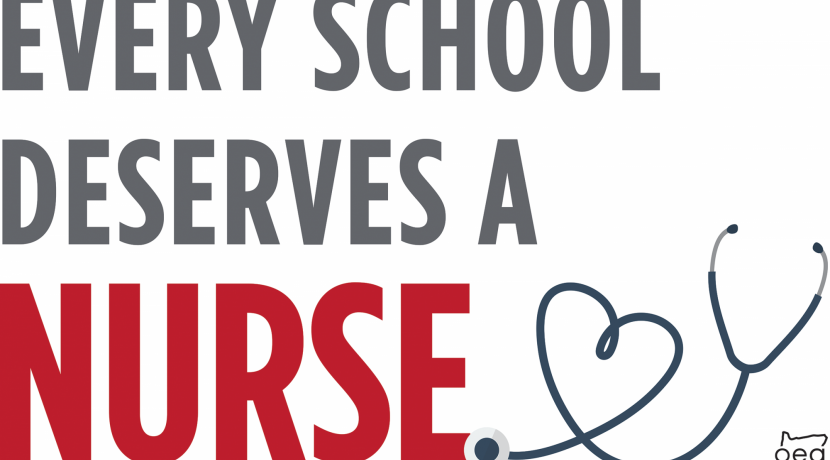

The Oregon Department of Education is seeking educator and community input on what Oregon’s high…
The Oregon Department of Education is seeking educator and community input on what Oregon’s high school students should know and be able to do before graduation. Educators can join online community conversations and also take a survey to share what they believe matters most.
These conversations are part of a larger review of Oregon’s graduation requirements prompted by Senate Bill 744, a bill passed with OEA member support in the 2021 session. Senate Bill 774 suspends the essential skills graduation requirement through the class of 2024 and requires ODE to engage with educators, families, students, and other community groups to review:
In addition to these community gatherings and the statewide survey, ODE is also meeting with key groups including high school students, educators, counselors, and special education teachers. These groups and their experiences with Oregon’s graduation requirements are critical voices as they are the groups closest to the high school and graduation experience.
Please help increase educator voices in these vital conversations that impact students across the state.
Background
The Oregon State Board of Education last changed the state graduation requirements in 2007. These changes included increasing the required number of credits to 24 and adding nine essential skills, deemed as skills that cross academic disciplines and included thinking critically, global literacy, and using technology. The board also added a requirement for graduates to demonstrate proficiency in three of the nine essential skills – reading, writing, and math. This proficiency requirement was in addition to the need to earn 24 credits with passing grades.
Students could demonstrate proficiency in these three areas in several ways including the Smarter Balanced Assessment, the SAT and ACT, certain portions of the GED exam, WorkKeys, IB and AP exams, and locally created work samples. Most students in Oregon met this requirement via the Smarter Balanced Assessment during their junior year.
The disruption of in-person learning in the spring of 2020 caused major disruptions to students’ ability to demonstrate proficiency in the essential skills. For the class of 2021 who were in 11th grade that spring, they lost the major opportunity to demonstrate proficiency – Smarter Balanced – as no students in the state took the test. For the graduating class of 2020, some students lost the opportunity to complete work samples to demonstrate proficiency if they had yet to do so. As a result of this and the continued COVID-19 disruptions to in-person learning, the State Board suspended the essential skills graduation requirement for the graduating classes of 2020, 2021, and 2022.
During this time, ODE completed a rigorous data analysis looking at how students in different groups demonstrated proficiency in the three essential skills. A concern emerged from the data, which shows that white students predominantly meet this requirement by achieving a certain score on the Smarter Balanced Assessments while non-white students, particularly African American/Black students, meet this requirement through local work samples. This disproportionate data raises several equity concerns.
Oklahoma is one of many states who have placed legal restrictions this year on how educators can…
Oklahoma is one of many states who have placed legal restrictions this year on how educators can approach the topics of race and gender in their classrooms.
But, the ACLU argues that this legislation is unconstitutional and strips teachers of their right to free speech and equal protection.
The lawsuit states that HB 1775, which passed the Oklahoma legislature in the Spring, unnecessarily and unlawfully censors educators’ ability to teach historical truths, specifying the Tulsa Race Massacre.
It also alleges that the law creates a hostile environment for LGBTQIA+, Black and Indigenous students.
Educators and administrators are already becoming fearful of losing their licenses in their quest to provide an accurate depiction of history and the current experience of minorities in the United States, the suit claims.
The next court date is set for the Spring of 2022.
Education Support Professionals (ESP) have long been the backbone of our schools, but never more…
Education Support Professionals (ESP) have long been the backbone of our schools, but never more than this school year. Our ESPs have kept our schools and students safe and cared for throughout the pandemic, and now it’s time to sing their praises! Nominations for the Oregon ESP of the Year Award will be open until January 3, 2022, so take a moment to recognize an amazing support staff member today! The winner will be chosen in April, 2022 and will receive a $5,000 cash prize.
Visit https://oregonteacheroftheyear... to learn more about the guidelines and to submit a nomination.

As more K-12 dollars flood in through the American Rescue Plan, Oregon leaders must address a…
As more K-12 dollars flood in through the American Rescue Plan, Oregon leaders must address a glaring equity gap. Currently, the state spends over $1,000 less per student than the national average of $15,114. But the number is much lower for students who attend schools in high-poverty areas.
According to the Education Law Center’s 2021 report: Making the Grade - How Fair is School Funding in Your State?, Oregon spends just over $13,000 per student in schools with the highest levels of poverty. The state received a ‘D’ grade for distributing funding equitably among schools with the most need.
The reality is that the complex school finance system that is used to calculate state school budgets leaves Oregon schools without the necessary resources to provide quality public education to students.
Immigration officers will no longer be able to make arrests on school grounds, at hospitals, and…
Immigration officers will no longer be able to make arrests on school grounds, at hospitals, and other protected spaces defined in an October memo from DHS.
“We can accomplish our law enforcement mission without denying individuals access to needed medical care, children access to their schools, the displaced access to food and shelter, people of faith access to their places of worship, and more," DHS Secretary Alejandro Mayorkas said of the decision.
This announcement is part of a larger agenda of the Biden administration, which will work toward undoing some of the more severe immigration policies of the previous leadership. Other places that have been declared ‘off-limits’ are day care and medical facilities; places of worship; playgrounds and recreation centers and demonstrations and rallies.

A big congratulations goes to Ethelyn Tumalad, a Clackamas High School English teacher and OEA…
A big congratulations goes to Ethelyn Tumalad, a Clackamas High School English teacher and OEA member who was announced as this year’s Oregon Teacher of the Year! As an Early Career Educator, Tumalad has been an active member of OEA’s BIPOC educator community, Equity SPARKS, and has been a contributor to Today’s OEA. She is the advisor for CHS’ Asian Pacific Islander Student Union, and was nominated by her students to receive this award.
Tumalad, who immigrated to the United States from the Philippines as a child, said that having just one educator who looked like her during her formative school years empowered her to follow her calling into the education field.
“I remember that was one of the first times in my educational career, it was in eighth grade, that I remember thinking, ‘wow, like maybe I could be an educator’,” she says.
During the last week of September, she was presented with the award during a surprise ceremony, surrounded by her colleagues, students, and family, who had driven from Washington to be present. She received a $5000 cash prize, and will attend speaking engagements and events both statewide

On October 29, the FDA officially announced that the Pfizer-BioNTech COVID-19 vaccine will be made…
On October 29, the FDA officially announced that the Pfizer-BioNTech COVID-19 vaccine will be made available to children as young as five years old. Oregon state officials have prepared to roll out the smaller doses to around 330,000 children across the state.
As of early November, medical providers began administering the vaccine to children through drive-through clinics and at some regional pharmacies. The Oregon Health Authority is working with providers in primarily BIPOC communities to ensure that adequate vaccine availability and information is provided to those who wish to access it.
More than 60 percent of children ages 11-17 are currently vaccinated against COVID-19, and the state hopes to see at least that many younger children receive protection. Parents who wish their children to receive the child-approved doses should speak with their medical providers.

The return to in-person learning across the state has been a challenge for all school employees,…
The return to in-person learning across the state has been a challenge for all school employees, but the change has been an almost insurmountable task to Oregon’s school nurse population. Their duty to the health and safety of their students and fellow educators is made next to impossible due to the fact that there are so few of them. As of 2020, there are over 4,500 students for every one school nurse. Last year, the number of Oregon school districts with no nursing staff was 61.
The problem is decades old. In 2009, the Oregon Legislature directed districts to meet a goal of a 1:750 school nurse-to-student ratio by 2020, but without funding, the mandate stalled. It is currently up to individual districts to budget for nursing staff, but as class sizes continue to grow and student mental health needs are increasing rapidly, many districts have had to make the difficult decision to hire more classroom educators, support staff, and mental health specialists.
Tanya Martin, a school nurse in Springfield, says that without dedicated funding to support investment in more school nursing staff, the gap will continue to widen. “I would like to see something mandated that has funding behind it so that districts can do it,” she says, “And it might not be the 1 to 750 (ratio) right away, but even a step in the right direction would be helpful.”

The Department of Justice (DOJ) under President Biden has reversed course on one of the most…
The Department of Justice (DOJ) under President Biden has reversed course on one of the most controversial decisions of the previous administration. A DOJ memorandum, which was delivered to Civil Rights Directors of all federal agencies on March 26, states that under Title IX, students must be protected from discrimination on the basis of sex, which includes sexual orientation and gender identity. This is a departure from the guidance issued just two months earlier by the former department leadership, which only allowed protections against discrimination based on “biological sex, male or female”.
The directive was announced just as many states have begun introducing laws to limit the protections of transgender youth this year, such as Arkansas’ ban on gender-affirming medical treatment.
The Biden administration has also taken steps to protect transgender school athletes by withdrawing previously-filed federal court briefs that attacked transgender-inclusive policies in some states’ school sports programs.
As the pandemic continues to wreak havoc in the lives of students and families, causing increased…
As the pandemic continues to wreak havoc in the lives of students and families, causing increased mental health crises and financial strain, Eastern Oregon University is offering educators a better way to deliver support through their Trauma in Educational Communities Certificate.
The certification is acknowledged by the Oregon Teacher Standards and Practices Commission, the only trauma-informed education program in the state to receive this recognition, and teachers who complete the program qualify for a specialization on their teaching license. Educators can take this continuing education program online and complete it in one year. The program is designed to create more equitable classroom environments, helping to decrease disciplinary measures and absenteeism, and increase academic achievement.
To learn more about the program, visit www.eou.edu/bridge-academy.